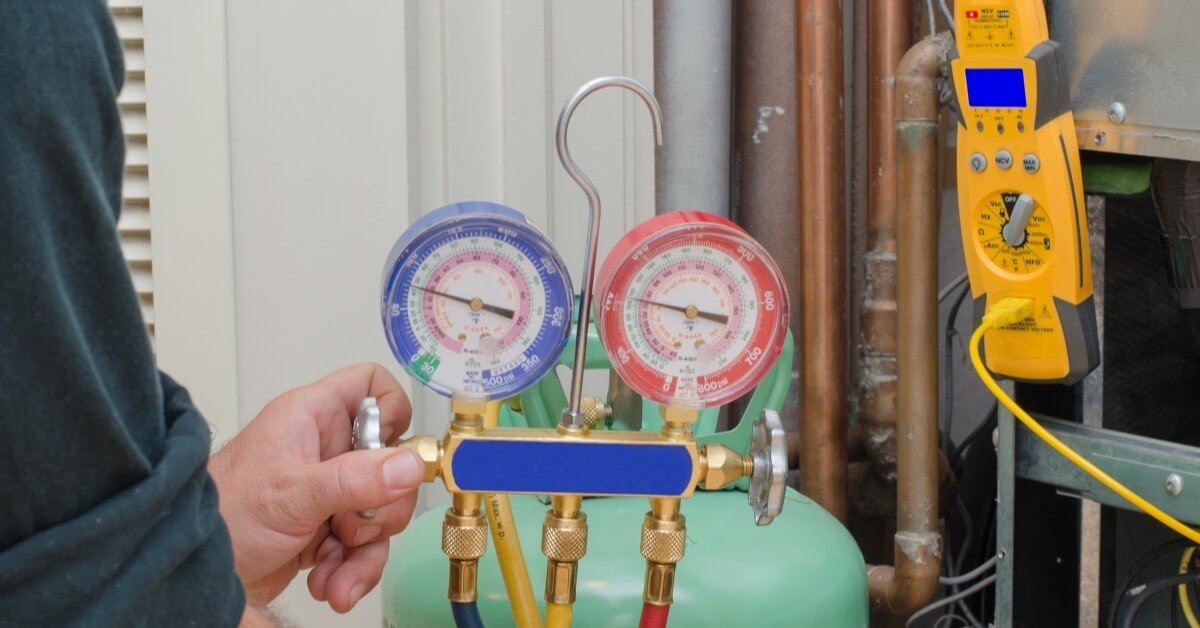3 EPA Section 608 Core Exam Topics

As any HVAC technician knows, Environmental Protection Agency (EPA) Section 608 certification is required to legally handle and work with refrigerants in the United States. There are several different types of Section 608 certification, and the type of certification you choose to obtain will most likely depend largely on the services you wish to perform. Regardless of the type of Section 608 certification you choose to obtain, the certification exam will test you over some core topics related to refrigeration and refrigerants.
In today’s post, we will cover some of the core topics found on all of the Section 608 certification exams. These core topics will give you a good place to start studying for your certification exam, which you can take from Mainstream Engineering when you are ready. Our site features numerous study materials, as well as information about our online and in-person testing sessions. Keep reading to learn more about the core topics covered on Section 608 certification exams.
Environmental Impacts of Refrigerants
The EPA regulates the use and disposal of refrigerants largely because of the adverse environmental effects associated with misusing refrigerants. The most well known of these adverse environmental effects is the destruction of the ozone layer by chlorine, which was present in many older refrigerants such as chlorofluorocarbon (CFC) and hydrochlorofluorocarbon (HCFC) refrigerants. For that reason, the core exam will test you over the environmental impacts of refrigerants and how to identify refrigerants that may be harmful to the ozone layer.
To this end, it will also test your understanding of the general atmospheric effects of different types of refrigerants. There is also a chance your exam could cover how ozone depletion affects the environment and human health, as well as the scientific evidence for CFCs and HCFCs harming the ozone. EPA certification is intended to avoid many of the environmental effects associated with using refrigerants, so you can be sure that the certification exam will test you on this topic.
Montreal Protocol and the Clean Air Act
The Montreal Protocol and the subsequent Clean Air Act are two more topics that the core EPA Section 608 certification exam will almost certainly cover. The Montreal Protocol was an international agreement to begin phasing out the production of ozone-depleting substances, such as CFC and HCFC refrigerants. The Clean Air Act, which soon followed the Montreal Protocol, was a Congressional law that directed the EPA to protect the ozone through regulatory programs, such as Section 608 certification.
The Montreal Protocol was finalized in 1987, while the Clean Air Act was passed in 1990. When studying, you can avoid mixing the two up by remembering that Montreal is not a U.S. city, and that the Montreal Protocol therefore refers to the international agreement instead of the congressional law.
Section 608 Regulations
Section 608 regulations themselves often play a large role in the core portion of the certification exam. While the type of Section 608 certification you pursue (Type I, Type II, Type III, or Universal) will determine the topics for a large portion of your exam, Section 608 regulations in general will be covered in the core portion of the exam. You will need to be able to recognize what is regulated by Section 608, define and identify high- and low-pressure refrigerants, as well as understand restrictions and standards that apply to each type of certification.
You will not need to fully understand each and every detail pertaining to Section 608, but you will need a broad comprehension of crucial terms, restrictions, and prohibitions that apply to the handling and disposal of refrigerants. This core exam topic allows you to be sure that you handle refrigerants in a manner that is both legal and responsible.
Get EPA Certification From Mainstream Engineering
Remember Mainstream Engineering when you need to get Section 608 certified. Our team is here to help you start your career as an HVAC technician on the right foot.

